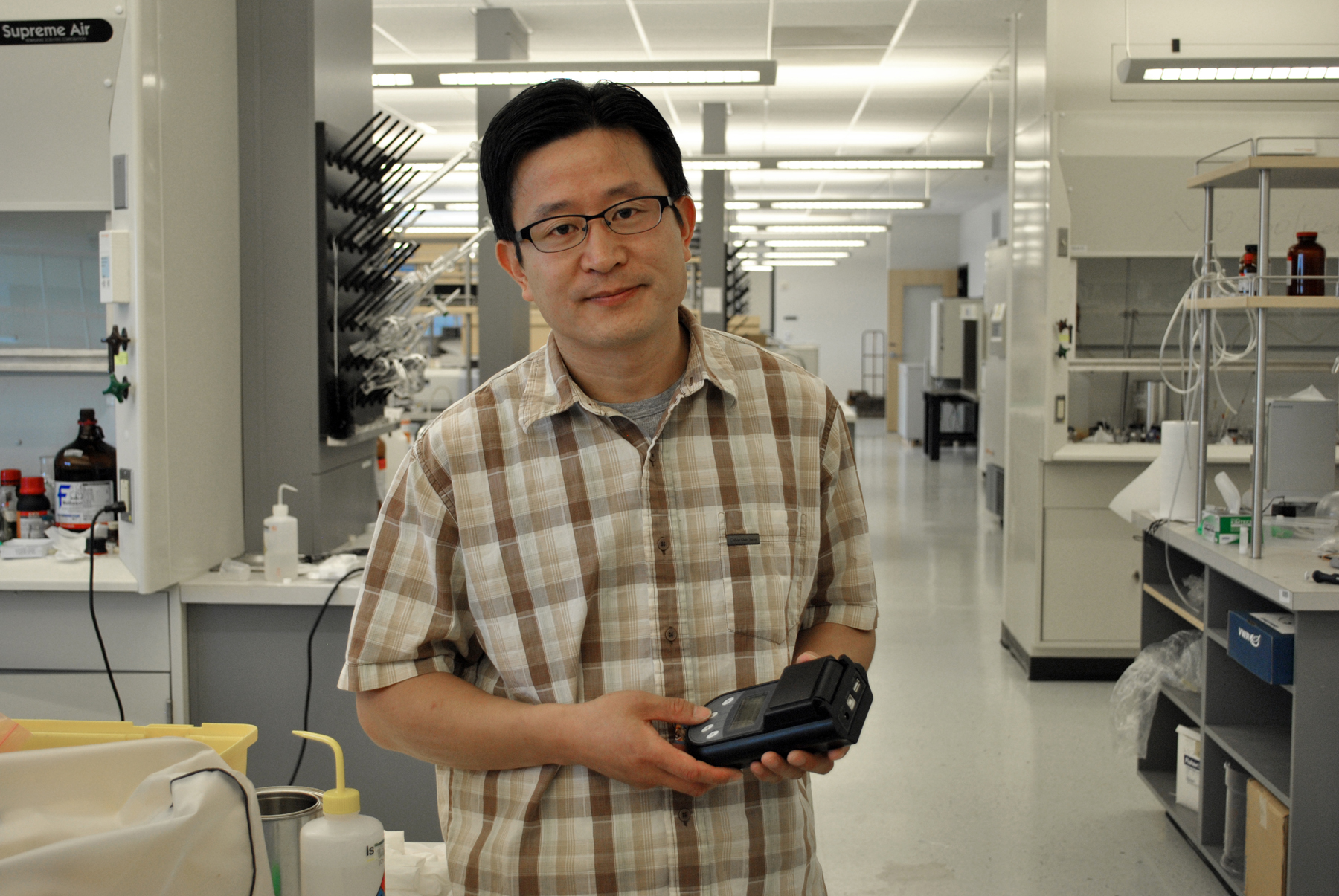
May 22, 2012 – The University of Utah is calling it “speed teching” (pronounced teck-ing) – and it’s a lot like speed dating.
The state’s leading research institution today welcomed investors, entrepreneurs, and executives and leading universities to the first University Innovators Speed Teching Showcase. The event, held at Zions Bank, is a lot like speed dating – university representatives get 90 seconds to pitch a technology to a table of investors, entrepreneurs and executives. When the buzzer rings, they must move to the next table.
The purpose of this, and future events, is to present as many technologies as possible to potential business partners. With a little luck, participants will get a few phone numbers – and maybe a date to discuss the technology and a partnership. After that, who knows? It could lead to a joint venture, seed funding, research partnership or startup company.
“Matching technologies with investors is a lot like dating,” says Bryan Ritchie, director of the U’s Technology Commercialization Office (TCO). “You never know how it will begin, you never know how it will develop, and sometimes it stops with no explanation whatsoever. It’s funny to think of it this way, but it’s also very serious. New ideas require innovative input and direction to move them forward, and that’s exactly what we’re doing.”
The U hopes the event will become a critical tool in advancing technologies from research laboratories to the real world for Utah universities. Faculty members at the U, for example, disclose more than 200 inventions every year, but only a fraction of those technologies are being licensed to startups or established companies. Most other university in the state faces a similar challenge.
The goal is usually to license these technologies to a company that can develop and package them into a profitable product or service. But the new research is often highly sophisticated – on the cutting edge of science – so finding a partner can be challenging. Sometimes technologies go unused for years, not because they don’t have value, but because the right person, with the right expertise, hasn’t come along.
Brigham Young University is one of the other universities that has already committed to attending the “speed teching” event. Administrators there see a lot of potential.
“We have a lot of great technologies that need to be seen by potential investors and industry partners,” says Mike Alder, director of BYU’s Technology Transfer Office. “This could be a way for that to happen. Utah needs forums like this so interested parties can see and participate in our best technology opportunities.”
In a related effort, the U is now offering a new type of technology license also designed to advance technologies quickly. It’s called a “value express license agreement.”
These new licenses are much simpler and cheaper than standard agreements. Typical licenses require fees, provide exclusivity and can take months to negotiate. The “value express license agreements” are much different – there are no upfront fees, they are not exclusive, and there is a standard format that can be executed on the spot. If an investor wants to adjust the terms – for example, to gain exclusivity – the U is willing to renegotiate at any time.
The “value express license agreements” are not available on all U technologies. They will only be available on select technologies that might not otherwise be licensed and will be available at the University Innovators Speed Teching Showcase.
“Our new licensing agreement is designed to put as many of our technologies to use as possible,” says Ritchie. “We have a group of technologies that have high potential but haven’t been licensed as quickly as we would like. These new licenses are designed to attract more investors by removing most of the risk and expense.”
Ultimately, licensing technologies to Utah companies is a question of economic development. When technologies that are developed at the U stay here, and grow here, the resulting income and job growth fuels additional innovation.
“The University of Utah is very anxious to play a leading role in economic development for the state,” says Ritchie. “This state has some of the most innovative, resourceful researchers and investors anywhere, and if we work together we can accomplish amazing things. We welcome partnerships of all varieties to grow Utah’s reputation as a hub for technology and entrepreneurship.”
For more information, contact Sheri Gordon at 801-587-9619 or sheri@tco.utah.edu.
